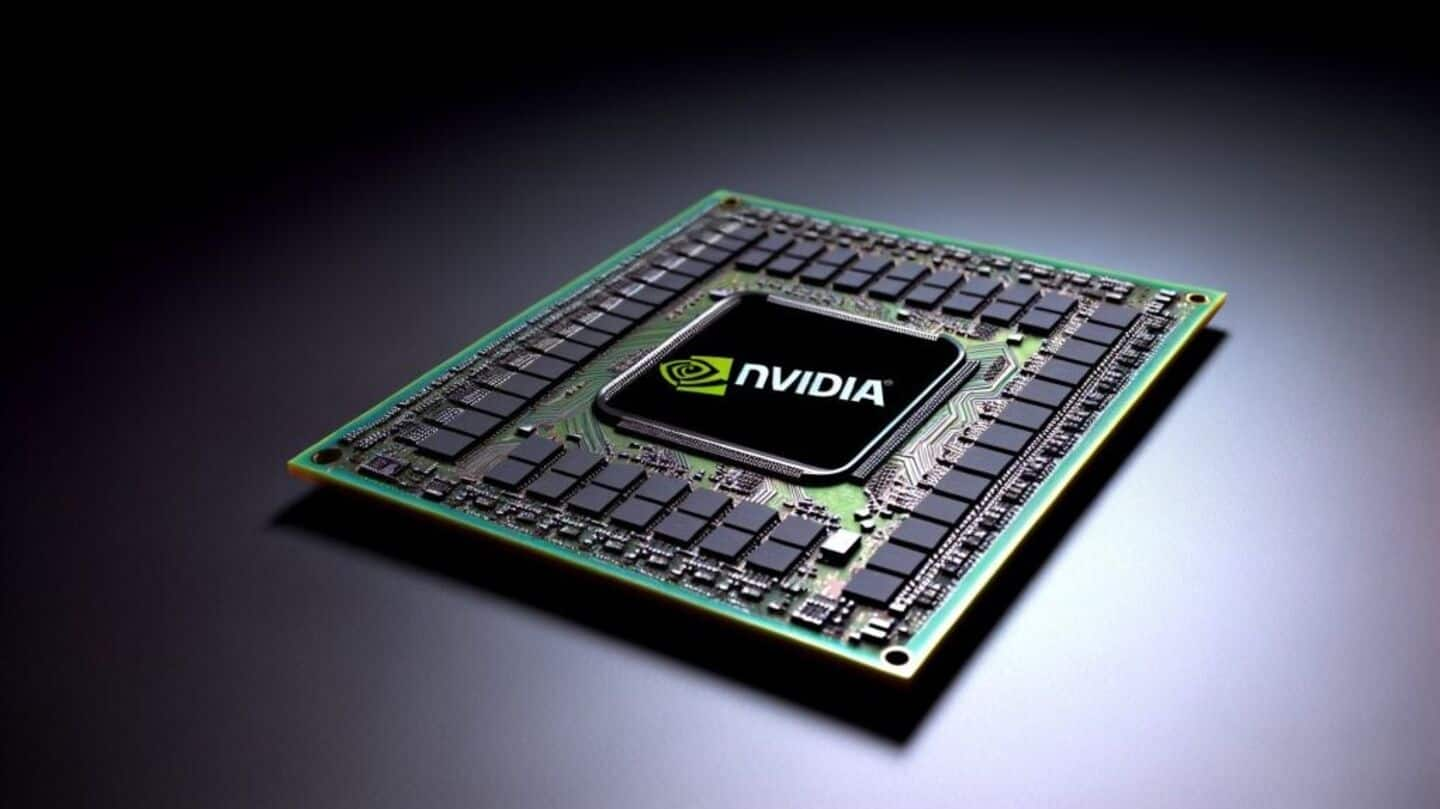
NVIDIA readying new AI chip for China that outperforms H20
What's the story
NVIDIA is working on a new artificial intelligence (AI) chip, the B30A, for the Chinese market. The upcoming chip is based on NVIDIA's latest Blackwell architecture and is said to be more powerful than the current H20 model. However, US regulatory hurdles could delay its launch amid ongoing trade tensions between the two countries.
Technical specifications
Specifications of the B30A chip
The B30A chip will feature a single-die design, which is expected to deliver half the raw computing power of NVIDIA's more sophisticated dual-die configuration in its flagship B300 accelerator card. It will also come with high-bandwidth memory and NVIDIA's NVLink technology for fast data transmission between processors. The upcoming is designed to fall under thresholds set by the US government and uses conventional GDDR memory with a memory bandwidth of 1,398GB per second.
Testing timeline
Samples for testing to be delivered by next month
While the specifications of the B30A chip are not finalized yet, NVIDIA hopes to deliver samples for testing to its Chinese clients as early as next month. The company said, "We evaluate a variety of products for our roadmap, so that we can be prepared to compete to the extent that governments allow." "Everything we offer is with the full approval of the applicable authorities and designed solely for beneficial commercial use."
Trade concerns
US-China trade tensions affecting AI chip access
The issue of how much access China should have to cutting-edge AI chips is one of the biggest flashpoints in US-China trade tensions. In July, NVIDIA got permission to resume sales of the H20 chip after export restrictions were imposed in 2023. Trump said last week that he may permit NVIDIA to sell a scaled-down chip in China, following the announcement of a deal requiring NVIDIA and AMD to give the US government 15% of revenue from chip sales there.